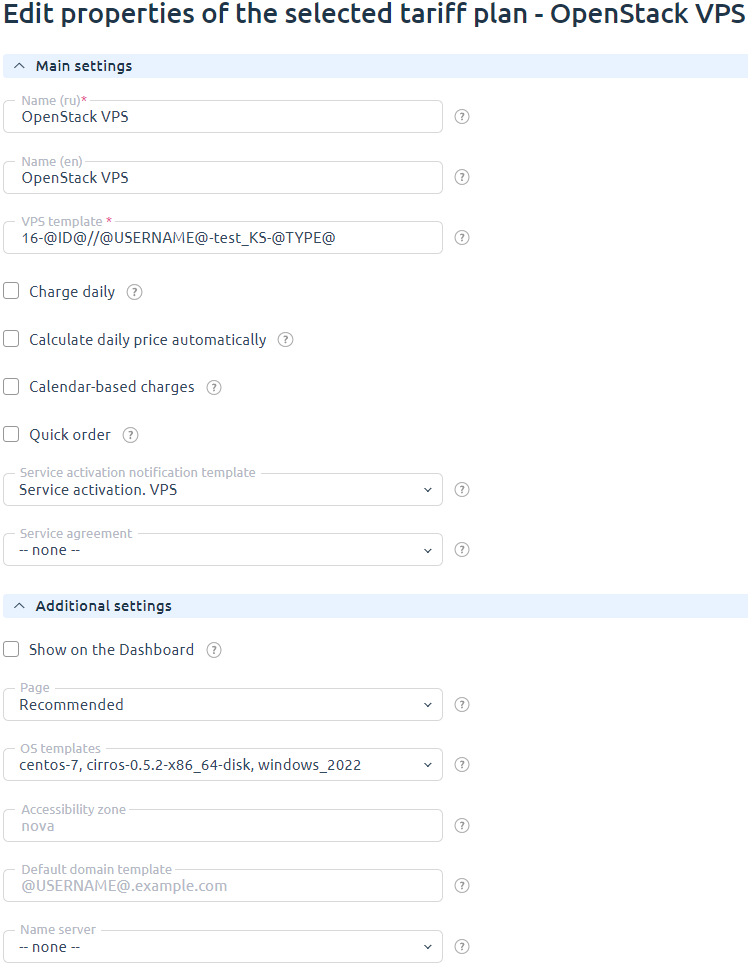This article describes the peculiarities of configuring a tariff when OpenStack (VPS) is selected as the processing module. For general configuration principles, see Creating and configuring a tariff.
Peculiarities of configuring a tariff
Specify the following parameters in the Main section:
- Virtual server template — the template by which the virtual server name will be built on the OpenStack side. The template supports macros
- @USERNAME@ — username;
- @TYPE@ — product type;
- @ID@ — service ID.
For example, the value "BILL-@ID@//@USERNAME@” is entered in the Virtual server field. Client Smith orders the service and it is assigned an ID of "16". Under these conditions, a virtual server named "BILL-16//Smith'' will be created on the OpenStack side for this service.
Under Advanced settings, specify the following parameters:
- Availability zone — the ordered services will be created by the compute (Nova) service within the specified availability zone. Leave the field blank to select the availability zone automatically.

Tariff content
When integrated with Openstack (VPS), the processing module supports the use of the following resources:
Addons related to virtual server resources can be changed by the client or an employee on the BILLmanager side.
The "Disk space" addon cannot be reduced. If you try to specify a value smaller than the ordered value, the processing module will return an error.
Automatic processing is not supported for addons other than those listed above. Such addons need to be disabled or processed manually.
Additional parameters
The module allows you to specify a public SSH key when ordering a virtual server. To do this, add parameter processing when ordering a tariff. Enter Products → Product types → VPS → Parameters → SSH key → Tariffs plans, then connect the required tariffs.

Operating system
When you connect to OpenStack (VPS) for the first time, the processing module will load the available values of the "Operating system" parameter into BILLmanager.
Subsequently, the available values are synchronized by a scheduler job:
/usr/local/mgr5/sbin/mgrctl -m billmgr processing.getconfig >/dev/null 2>&1 En
En
 Es
Es